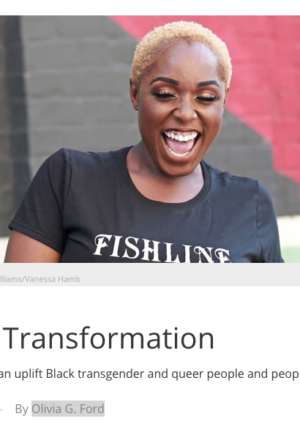Positive Transformation
Toni-Michelle Williams, the executive director of the Solutions Not Punishment Collaborative (SNaP Co.), a Black trans- and queer-led organization working to build safety, leadership and political power, explores alternatives to the historically violent and biased U.S. policing system—including restorative and transformative justice models.
